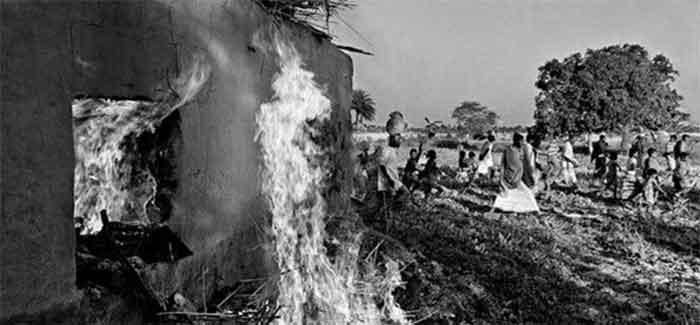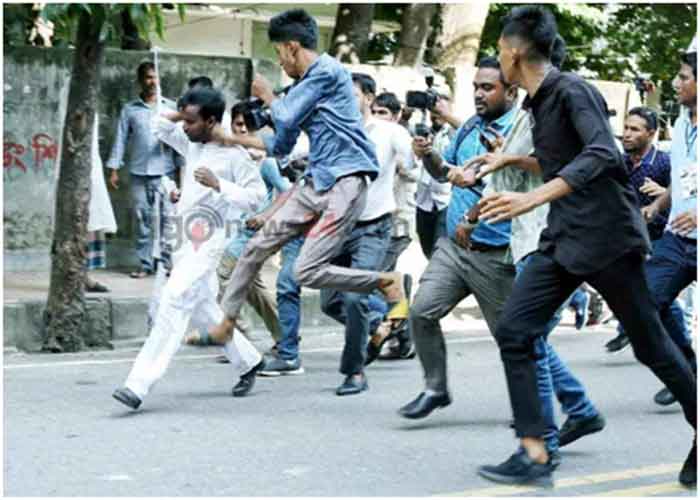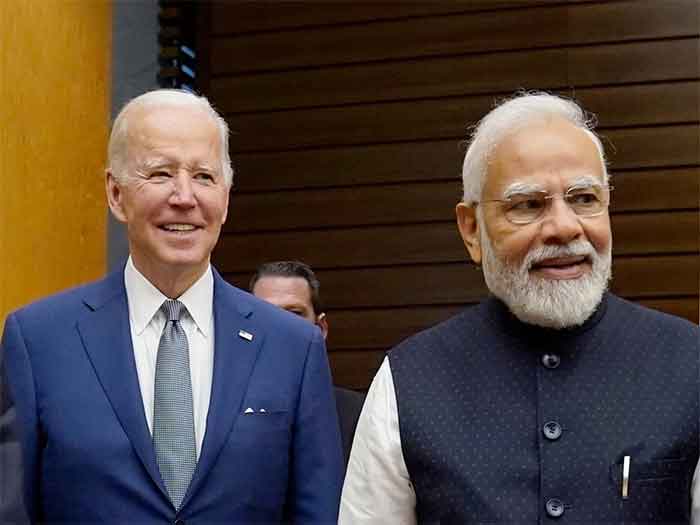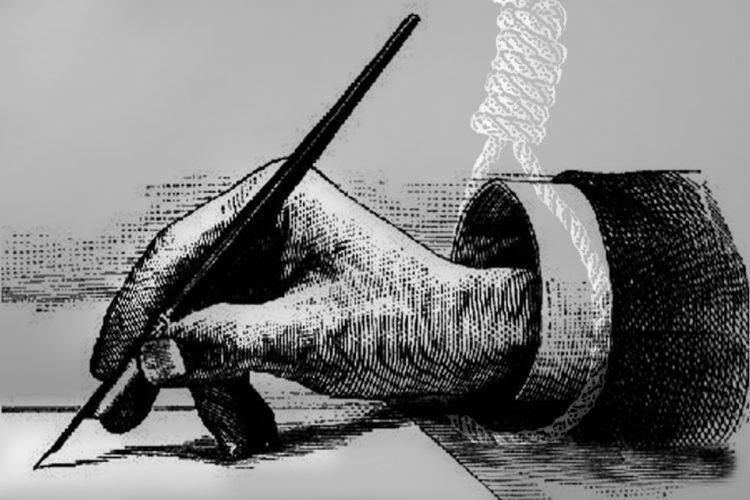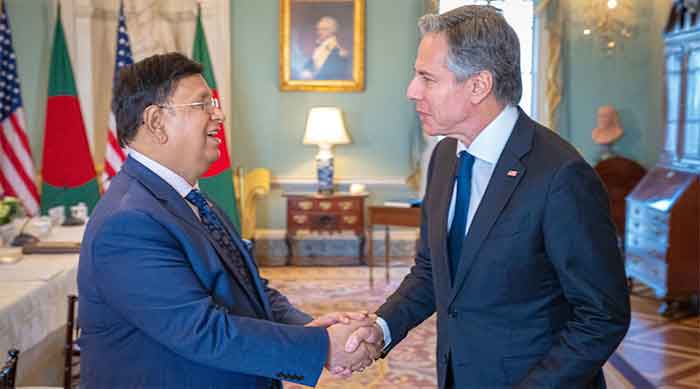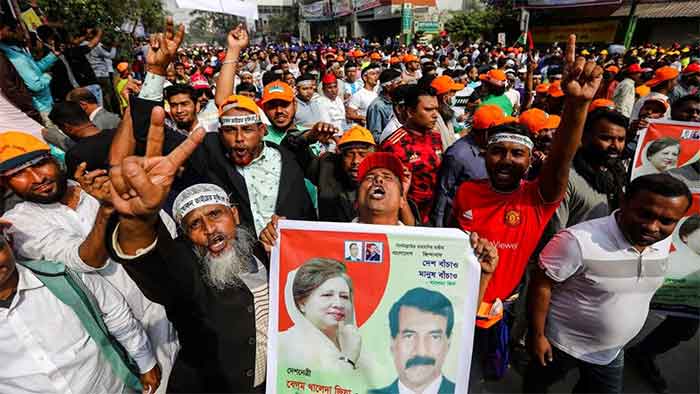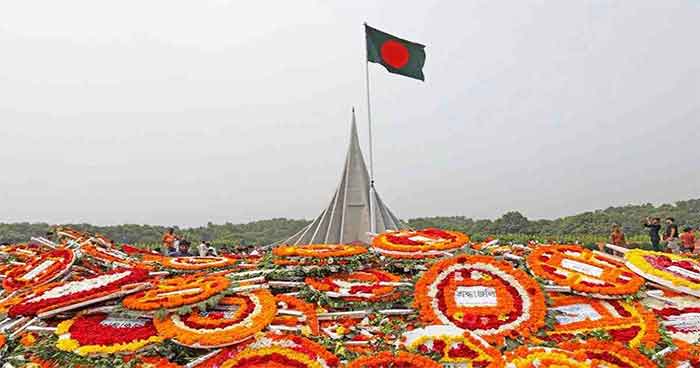
On its 50th Independence Day ( March 26) Bangladesh can take well-deserved pride in the advancement in terms of several important development indicators achieved in the middle of many-sided difficulties. It is in addition also a time to recall many courageous contributions of recent decades, as courage has been much in need in several troubled phases of this land and its people.
Following independence from British rule the people here faced a new phase of step-motherly treatment from the union government of Pakistan. There was allocation of less resources for this eastern part of the country, even when this part contributed the bulk of exports. Urdu language was imposed on people while Bengali music and songs had little place in official media. It is an indication of neglect of basic development and infra-structure needs that Bhola cyclone in 1970 claimed as many as four hundred thousand lives. Most of these people could have been saved with better preparations.
The Awami League channelized the aspirations of people for democracy and equality, and when its great election victory was clamped down with brute force in early 1971, the most prominent leader Sheikh Mujibur Rehman openly announced a struggle for independence. He was arrested and one of the most cruel waves of repression started.
Over 2 million people were killed, nearly 3 lakh women were raped and nearly 10 million escaped to seek refuge across the border in India in the course of the next nine months or so. The Hindu minority people, supporters of Awami League, students and academics, girls and women were specially targeted for cruel repression. In one incident a hostel room of girl students was first burnt and then running girls were machine-gunned.
All along the nearly 9 month phase of repression Pakistan with its cruel dictator Yahya Khan was firmly supported by the USA and China. The USA consul-general in Dhaka Archer Blood referred to this repression in official ( secret) communication as genocide and both he as well as the USA ambassador in Delhi Kenneth Keating pleaded with Nixon and Kissinger in Washington to give up this policy of repression but they refused. Instead , at the peak of the genocide on August 7 1971 Nixon wrote to Yahya Khan , “ Those who want a more peaceful world in the generations to come will forever be in your debt.” ( as per USA government documents declassified later, reported in the Daily Star, December 5, 2009).
The people fought back. The Mukti Bahini and other groups of freedom fighters fought bravely to liberate a large part of rural areas. There are many stories of great courage on the part of these freedom fighters. While their courageous contribution was the stuff of which legends are made, the courage of Indian soldiers and the great contribution made by the timely intervention of India should not be discounted either.
Mrs. Indira Gandhi, helped by very wise advisers like P.N.Haksar and great generals like Sam Manekshaw, rose to her biggest achievement and brought the brave efforts of Mukti Bahini to a fruitful culmination in mid-December with the surrender of the Pakistani forces. A nation was born—Bangladesh.
To capture the significance of the event one must remember the seriousness of the situation. India may have been forced into a joint confrontation with Pakistan, China and USA. In a threatening gesture the USA already had sent its nuclear submarine USS Enterprise in the Bay of Bengal. Illegal arms transfers had already been made by the USA to Pakistan. China had already used its veto in favor of Pakistan at the UNO. In such circumstances it was both an act of great courage and a great triumph of diplomacy that India could assist successfully in the liberation of Bangladesh. The timely and invaluable support of the USSR played a crucial role in the success, and we should also recall the contribution of many individuals in western countries in turning public opinion in favor of liberation of Bangladesh.
I was a student in Air Force School in Delhi Cantt when on a foggy winter morning Banglabandhu Mujibur Rehman stopped by for an hour or so (after his release from captivity in Pakistan, on way from London to Dhaka, I think in the first week of January 1972) at our Air force Grounds and we students declared our own holiday in early morning hours and rushed to see and hear the charismatic leader. Though he spoke in Bangla, we tried to lap up his every word. The punch line was his statement saying –I believe in democracy, I believe in socialism, I believe in secularism. For several weeks we students would act out the speech, with this sentence repeated time and again.
Despite these good intentions, however, before things could stabilize Bangladesh was again thrown into turmoil as Mujibur Rehman along with many family members was killed on 15 August 1975 by conspiring army officers. This led to more coups and conspiracies and killings with military rule extending for over 15 years. In these years the commitment to secularism, socialism and democracy was crushed with a very heavy hand. At one stage in 1977, it was reported that in cases relating to a coup attempt, as many as 1100 persons were given the death sentence and executed. It is widely believed that such coup allegations were widely used to kill those who could have offered resistance to authoritarian regimes.
So it is all the more credible that the spark of democracy and other noble aims was somehow kept alive by many courageous activists and citizens, including some eminent citizens. It is also very credible that in the middle of several difficulties, including increasingly adverse weather conditions in these times of climate change, Bangladesh has been able to register significant improvements in some important development indicators, surpassing Pakistan. The development efforts of Bangladesh as well efforts of its people to improve democracy deserve wide support. India should strive to improve all-round relations with Bangladesh.
Bharat Dogra is a journalist and author. His recent books include Man Over Machine and Planet in Peril.
GET COUNTERCURRENTS DAILY NEWSLETTER STRAIGHT TO YOUR INBOX

